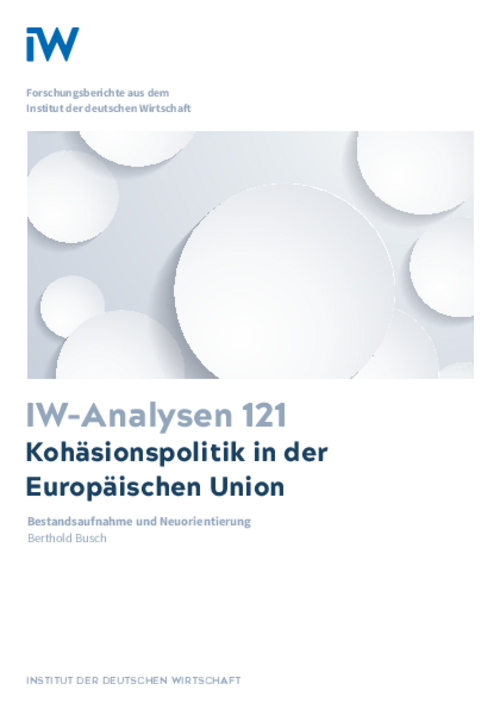This Analysis addresses the further development of the European Union’s post-2020 cohesion policy, for which a new Multiannual Financial Framework (MFF) has to be agreed by the EU Member States.

Review and reorientation: Cohesion Policy in the European Union
IW-Analyse

This Analysis addresses the further development of the European Union’s post-2020 cohesion policy, for which a new Multiannual Financial Framework (MFF) has to be agreed by the EU Member States.
This has always been a difficult undertaking. To make matters worse, the United Kingdom is highly unlikely to be a member of the EU for the next MFF. As a result, the long-term British net contribution to the EU budget is likely to be much lower and may even be completely eliminated. Against this backdrop, this Analysis argues for a change of course in EU cohesion policy: in the future, only the poorer Member States should be financially supported, and they should not have to contribute to the financing of this policy at the EU level. A change of course is also advisable because in the two most recent funding periods the policy of concentrating the promotion of economic and social cohesion on the poorest regions has been abandoned.

Berthold Busch: Cohesion Policy in the European Union – Review and reorientation
IW-Analyse

More on the topic

Recommendations for Increasing Investment in Climate Protection
Germany has set itself ambitious goals for climate protection in its buildings, with the building stock expected to be almost climate-neutral by 2050. This will require extensive refurbishment of almost all residential and commercial properties.
IW